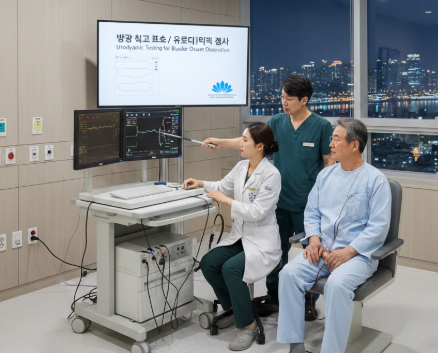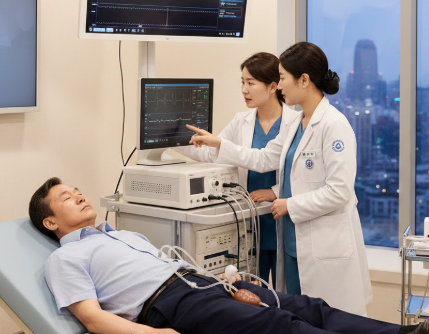Hormone therapy (HT) is a widely used and effective treatment for managing menopausal symptoms such as hot flashes, night sweats, vaginal dryness, and mood changes. However, concerns about the potential link between hormone therapy and breast cancer risk can cause hesitation or fear in many women considering or currently using HT.
If you’re wondering how hormone therapy affects breast cancer risk and what you should consider before starting treatment, this guide will provide clear, evidence-based information to help you make an informed decision.
Understanding Hormone Therapy and Its Types
Hormone therapy typically involves the administration of estrogen alone or in combination with progestin (a synthetic form of progesterone):
- Estrogen-only therapy (ET): Prescribed mainly for women who have had a hysterectomy (removal of the uterus).
- Combination therapy (estrogen + progestin): Used for women who still have their uterus to prevent uterine lining overgrowth.
Different types of hormone therapy have different effects on breast cancer risk, so it’s important to understand these distinctions.
What Research Says About Hormone Therapy and Breast Cancer Risk
The most influential study on this topic was the Women’s Health Initiative (WHI), which started in 1993. The WHI results, published in 2002, initially caused widespread concern:
- Women using combination hormone therapy had a slightly increased risk of breast cancer.
- Women using estrogen-only therapy showed no increased risk, and in some cases, a decreased risk.
More Recent Insights:
- Duration matters: Breast cancer risk appears to increase slightly with longer use of combination therapy, especially beyond 5 years.
- Timing matters: Starting hormone therapy closer to menopause onset (typically before age 60 or within 10 years of menopause) tends to carry a lower risk.
- Type of progestin matters: Some types of progestin may have a lower associated risk compared to others.
- Estrogen-only therapy has not been associated with an increased breast cancer risk in women without a uterus.
What Is the Absolute Risk?
While studies show a relative increase in breast cancer risk with some hormone therapies, it’s essential to understand what this means in practical terms:
- The absolute risk increase is small. For example, for every 1,000 women taking combination HT for five years, there may be 5-8 additional cases of breast cancer.
- Many women use hormone therapy safely without developing breast cancer, especially with careful screening and monitoring.
Factors That Influence Your Breast Cancer Risk on Hormone Therapy
Your personal risk depends on several factors:
- Family history: A strong family history of breast cancer or genetic mutations (e.g., BRCA1/2) may increase baseline risk.
- Age: Older age at therapy initiation can increase risk.
- Duration of therapy: Longer use increases risk.
- Lifestyle: Smoking, alcohol intake, obesity, and lack of exercise contribute to overall risk.
- Type of hormone therapy: Combination therapy carries more risk than estrogen-only therapy.
How to Minimize Breast Cancer Risk While Using Hormone Therapy
- Use the lowest effective dose of hormones to manage symptoms.
- Limit the duration of hormone therapy, typically to 3-5 years or as advised by your healthcare provider.
- Regular breast cancer screening: Mammograms and clinical breast exams should continue as recommended.
- Discuss hormone types: Transdermal patches or gels may have lower risks than oral pills.
- Lifestyle modifications: Maintain a healthy weight, exercise regularly, limit alcohol, and avoid smoking.
Alternatives for Women at High Risk
If you have a high risk of breast cancer or have had breast cancer, hormone therapy might not be the safest choice. Alternatives include:
- Non-hormonal medications like SSRIs, SNRIs, or gabapentin to reduce hot flashes.
- Vaginal estrogen for local symptoms, which has minimal systemic absorption.
- Lifestyle changes, acupuncture, cognitive-behavioral therapy, and other integrative approaches.
What to Discuss With Your Healthcare Provider
Before starting hormone therapy, have an open conversation about:
- Your personal and family history of breast cancer.
- Your menopausal symptoms and their impact on quality of life.
- The risks and benefits of hormone therapy specific to your health profile.
- Alternative treatments if you’re at higher risk.
- How you will be monitored during treatment.
Final Thoughts
Hormone therapy remains one of the most effective treatments for menopause symptoms and can be used safely by many women when personalized to their risk profile. While there is a small increase in breast cancer risk with some hormone regimens, this risk must be weighed against the potential benefits in symptom relief and quality of life.
Working closely with your healthcare provider to tailor your treatment plan, stay vigilant with screenings, and adopt a healthy lifestyle can help you manage menopause safely and confidently.




